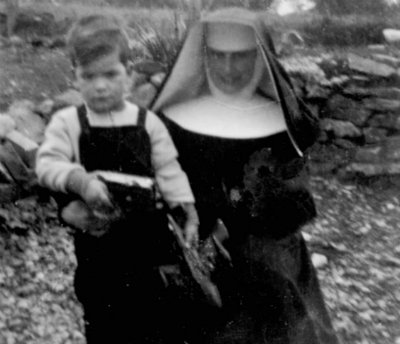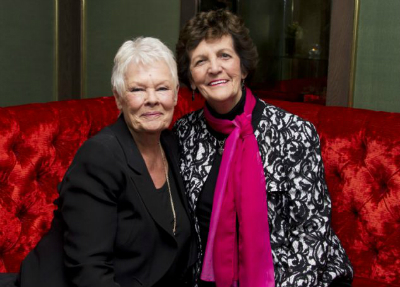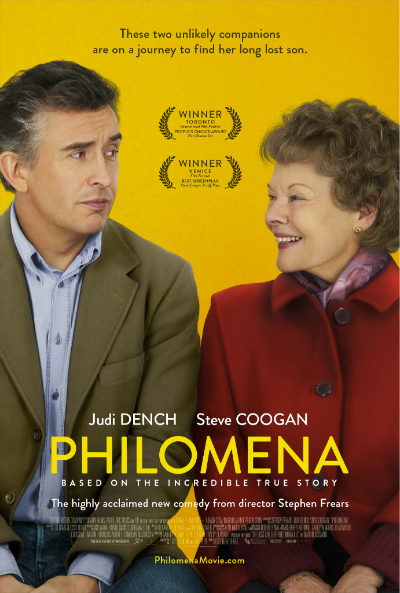I wouldn’t exactly characterize Stephen Frears much-praised film Philomena as a comedy. I’d describe it as more of a dramatized exposé of the corruption of the Irish Catholic church with moments of levity that give a desolate story warmth and humanity. Philomena is based on the true story of Philomena Lee, an Irish woman who got pregnant as a teenager and was relegated to a convent where she was forced to perform grueling manual labor before her young son was sold to an adoptive US family. Fifty years later, Philomena works with a washed-up ex-journalist to find her son while he uncovers the dark truth behind her son’s adoption and the church’s betrayal. Overall, I’d say this is a feminist film that tries to expose oppressive gender roles that linger on today and allows its heroine, played by the exquisite Dame Judi Dench, to be her own person: a woman who makes her own decisions and mistakes while remaining irrepressibly full of humor and love.
[youtube_sc url=”http://www.youtube.com/watch?v=4DBPqcp6Hc4″]
Philomena is in the business of critiquing institutions; specifically: religion, gender, class, and media. The interactions between ex-journalist Martin and Philomena highlight class disparity. Sometimes the exposure is subtle. Martin flies to the convent while Philomena drives with her daughter. Philomena is giddy at the prospect of free champagne on the flight to America as well as the complimentary grand breakfast buffet and the posh hotel room. She doesn’t “get” Martin’s sense of humor or cultural references, and she reads romance formula fiction, never guessing at the “formula” obvious in all her books. These moments are designed to make the audience chuckle at the sweetness of Philomena’s naivete while underscoring her lack of privilege, education, and wealth.

Other times, the class disparity is stark and painful. Philomena realizes she could never have given her son the opportunities and lifestyle he enjoyed as a result of his adoption. Martin is, on occasion, cruel to her because the things that excite her are old hat for him; he’s jaded and has come to expect a life of comfort and privilege. He also mocks Philomena for her faith, insinuating that her class status is why she believes in a higher power (because he is too learned and intellectual to believe in anything). The movie shows that though Martin is more worldly, wealthier, and better educated than Philomena, he doesn’t enjoy life the way that she does. She refuses to be bitter or angry like he is. He begins to understand and accept the fact that Philomena needs him, with his connections and his status as an upper-crusty white man, to find out the truth about her son.

Philomena‘s religion and gender critique go hand-in-hand. Religion judges and punishes young women (some as young as 14) for giving in to “carnal” desires that they haven’t been educated about to even understand the potential consequences. The film also highlights forced labor along with constant recriminations to show how religious forces incite fear, shame, and blame that Philomena and countless others carry for over 50 years. Philomena experiences a particular guilt because she enjoyed the sexual encounter that led to her pregnancy. The church teaches that female bodies and female pleasure are sinful, and many of the nuns are revealed to be bitter and vengeful, a perfect example of patriarchy-complicit female figures of authority. There is no discussion of the culpability of the male cohorts whose sperm was a necessary part of the baby-making equation. Sound familiar? The religious right continues this mentality with its abstinence-only education while heaping stigma galore onto young women who become trapped in pregnancy, insisting that the female body is a breeding ground for impurity and that all the fault lies within the woman, who is, in many cases, forced to suffer all the consequences.

The kicker is that “female sin” is big business for the church in Philomena. The convent forces young women to “pay off” their debt/sin by working ungodly hours (pun intended) in the convent, and then they illegally sell the babies to the US for a great deal of money. The church destroys evidence and refuses to help families reunite even after 50 years of separation. The film claims that this was in part due to a continued resentment and desire to punish the sins of the young mothers, but it’s perhaps more true that the church is covering its tracks. Here, the church, a religious institution, takes advantage of the weak, the helpless, the poor, and the disenfranchised. Here, the church, targets women in particular using the notion of female sin to solidify their dogma and to reinforce their power (financial in this case). The exploitation of women by religious institutions is not new and continues today, as female reproductive rights are leveraged to cause divisiveness and to reinforce the power of political groups, religious groups, and the patriarchy.

Despite it all, Philomena remains a good-hearted person. She stands up to Martin when necessary, insisting that this is her story. She asserts that she’ll be the one who makes the decisions and that her reaction is her own, not his or a media that seeks only to capitalize on her tale of woe and exploit her for its own gain. She continues to love and accept her son regardless of the many things she learns about him that an old-fashioned religious person like herself could have found alienating. In the end, she forgives the convent, proving that she is the bigger person and more Christian than the nuns and religious institution that tormented her. While the circumstances of the film are tragic and devastating, Philomena’s doggedness, her bravery, and her journey have exposed wide-spread corruption and opened the door for other mothers to reunite with their long-lost children. Though she’s an ordinary woman without means, a fancy education, or influence, she stood up to a powerful institution steeped in centuries of history, and she said, “No more.” Philomena’s quest shows us that the personal is political and that one woman can make a difference in the the world.

——————
Amanda Rodriguez is an environmental activist living in Asheville, North Carolina. She holds a BA from Antioch College in Yellow Springs, Ohio and an MFA in fiction writing from Queens University in Charlotte, NC. She writes all about food and drinking games on her blog Booze and Baking. Fun fact: while living in Kyoto, Japan, her house was attacked by monkeys.

2 thoughts on “‘Philomena’: A Feminist Gender and Religion Critique”
Comments are closed.